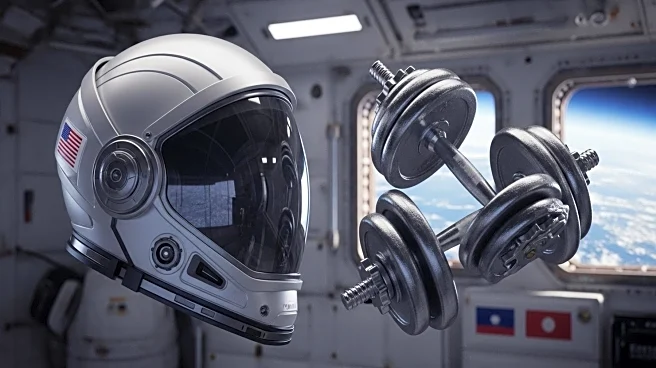What's Happening?
NASA is conducting advanced medical studies aboard the International Space Station (ISS) focusing on crew fitness and vision. The research aims to understand how the human body adapts to weightlessness, which accelerates muscle and bone loss. NASA Flight Engineers Jonny Kim and Zena Cardman are participating in fitness studies, wearing sensors to measure their health data during exercise. Additionally, JAXA's Kimiya Yui is leading vision studies to examine the effects of microgravity on eye structure. These studies are crucial as NASA plans longer missions to the Moon, Mars, and beyond.
Why It's Important?
Understanding the physiological effects of long-term space travel is vital for the success of future missions to distant destinations like Mars. The research on muscle and bone loss, as well as vision changes, can lead to the development of countermeasures to ensure astronaut health and performance. This knowledge is essential for planning extended missions, where maintaining physical fitness and vision is critical for mission success and safety. The studies also contribute to broader scientific knowledge that can benefit medical research on Earth.
What's Next?
NASA and its international partners will continue to analyze data from these studies to develop strategies for mitigating the adverse effects of microgravity. The findings could lead to improved exercise protocols and vision care for astronauts, enhancing their ability to perform tasks during long-duration missions. As the research progresses, it may also inform the design of future spacecraft and habitats to better support human health in space.









